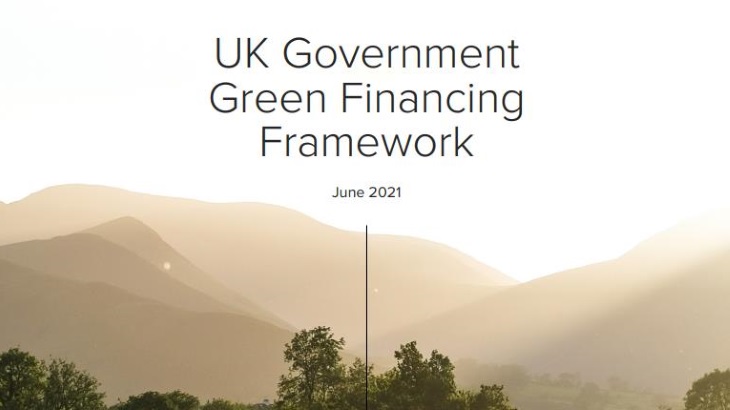The UK's Green Financing Framework describes how the government plans to finance expenditures through the issuance of green gilts and the retail Green Savings Bonds that it says will be critical in tackling climate change and other environmental challenges. The framework, which was produced and published yesterday by the Treasury, sets out the basis for identification, selection, verification and reporting of the green projects that are eligible for such financing.
Under 'exclusions', the document says: "Recognising that many sustainable investors have exclusionary criteria in place around nuclear energy, the UK government will not finance any nuclear energy-related expenditures under the Framework."
It adds: "The UK government, however, recognises that reaching net zero emissions will require all energy to be delivered to consumers in zero-carbon forms and be derived from low-carbon sources. Nuclear power is, and will continue to be, a key part of the UK’s low-carbon energy mix alongside solar and wind generation and carbon capture and storage. All these technologies are important in tackling climate change and diversifying the UK’s supply, contributing to the UK’s energy security and sustainable growth."
The Framework aligns with the 2021 International Capital Market Association Green Bond Principles.
"To enable investors to follow the progress and positive impact delivered," the Treasury said it intends to publish an allocation report on its Eligible Green Expenditures on an annual basis and an impact report setting out the environmental impacts and social benefits at least biennially.
The UK is also in the process of developing its own 'green taxonomy'.
Germany-led opposition
Meanwhile, a group of five EU Member States, led by Germany, have written to the European Commission asking for nuclear energy to remain excluded from the EU Taxonomy on Sustainable Finance.
Their letter follows the assessment of the Joint Research Centre (JRC), whose mission is to support EU policies with independent evidence throughout the whole policy cycle, that nuclear energy does no more harm to human health or the environment than any other power-producing technology considered to be sustainable.
The letter - signed by the environment or energy ministers of Austria, Denmark, Germany, Luxembourg and Spain - points to “shortcomings” in the JRC report, which was published in April.
The ministers said the JRC's conclusion was "a misconception" and based on "two grave methodological shortcomings".
The JRC "neglects to address the residual nuclear risk, assessing only the normal operation of nuclear power plants" and "disregards the life-cycle approach", according to the ministers.
"We recognise the sovereign right of Member States to decide for or against nuclear power as part of their national energy systems. However, we are concerned that including nuclear power in the Taxonomy would permanently damage its integrity, credibility and therefore its usefulness," they wrote.
The two expert groups tasked by the European Commission with the review of the JRC report on the sustainability of nuclear energy published their assessments today. They are here and here.
The Article 31 group largely agrees with the conclusions of the JRC report, while the Scientific Committee on Health, Environmental and Emerging Risks (SCHEER) recognises its own lack of the requisite expertise to conduct this assessment but raises some concerns about the conclusions of the JRC report.
Taken note
Foratom, the trade body of the European nuclear industry, said it has "taken note" of the two expert opinions issued in relation to the assessment of nuclear under the taxonomy.
"As the Article 31 group is composed of independent radiation protection and public health experts, we find their conclusions very reassuring," Yves Desbazeille, Foratom director general, said. "For example, in their opinion, the existing European legal framework provides adequate protection in terms of public health and the environment in the EU. For activities outside of Europe, they find that international standards offer a comparable level of protection."
Foratom also highlighted that the Article 31 experts had confirmed the view of the JRC that deep geological repositories are an appropriate and safe solution for the management of high-level waste, noting that the technology is already available today.
The SCHEER opinion in general agrees with the JRC, Foratom said, with regards to the non-radiological impacts of nuclear and the fact that it does not represent 'unavertable harm' to human health and the environment, although they do note that some information may be lacking.
"The SCHEER has raised a query as to whether the assessment of nuclear on the basis of the existing criteria under the taxonomy is enough to demonstrate that it does 'no significant harm'," Desbazeille said. "Without going into the details of this query, it is important to bear in mind that the taxonomy regulation calls for technology neutrality to be maintained. As such, the JRC has assessed nuclear in line with the taxonomy criteria. If a more in depth assessment is needed, then it should apply to all technologies under the taxonomy, and not just nuclear."





_47120.jpg)

_23621.jpg)






